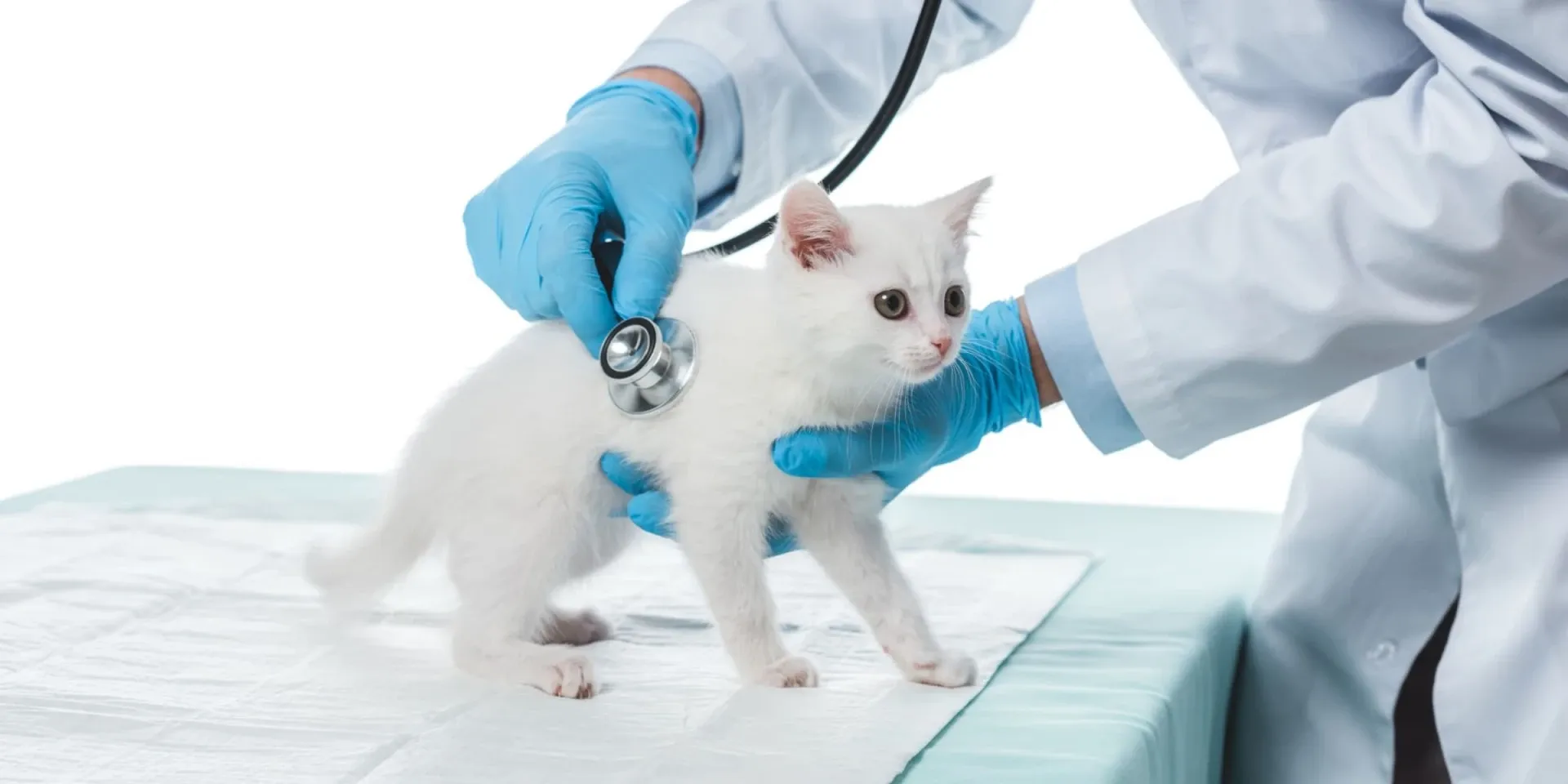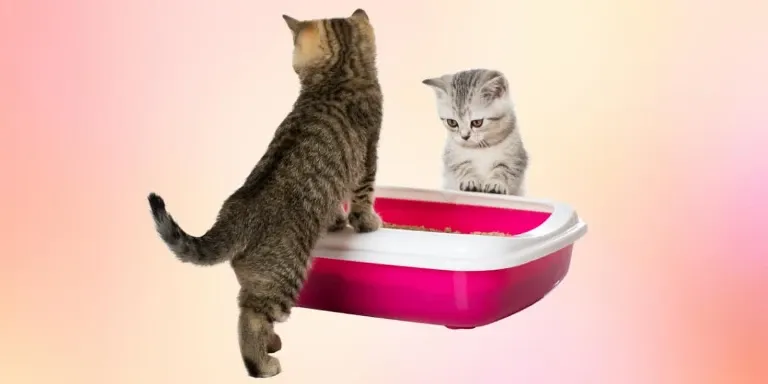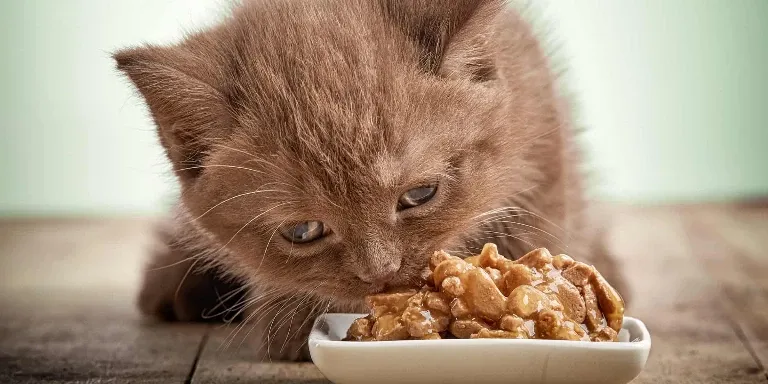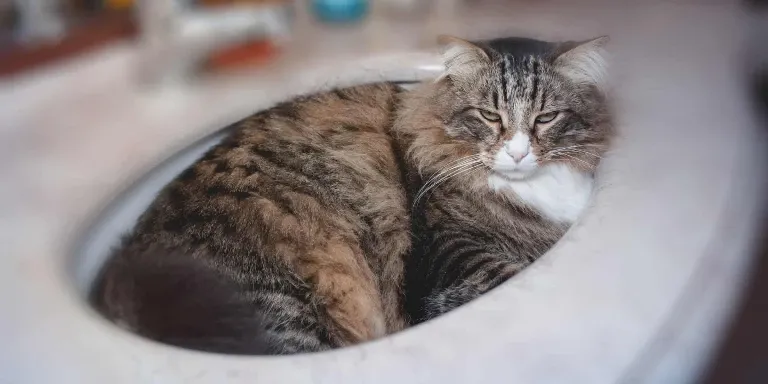The Best Fluffy Pancakes recipe you will fall in love with. Full of tips and tricks to help you make the best pancakes.

Are you a new cat owner wondering if your kitten can become pregnant?
A kitten can become pregnant as early as 4 months of age, even before they reach full maturity. It is recommended to spay a kitten before they reach sexual maturity to prevent unwanted litters and health issues.
Kitten reproduction is a delicate and risky process, which can lead to several health complications for the mother and her offspring.
In this article, we will explore the signs of pregnancy in kittens, the risks of young kitten pregnancy, and prevention techniques to keep your furry friend healthy and safe.
As a responsible cat owner, it is essential to understand the reproductive cycle of your pet and take necessary precautions to avoid unwanted pregnancies. The age at which a kitten can become pregnant varies from breed to breed, but typically, it is between four to six months old. While their bodies may be physically capable of reproduction, they are not mature enough to handle the demands of pregnancy and childbirth.
It is crucial to recognize the signs of pregnancy in your kitten and take appropriate action to ensure her well-being. Let’s dive deeper into the topic of kitten pregnancy and explore how you can keep your fur baby healthy and happy.
Understanding Kitten Reproduction
Don’t be fooled by their cute exterior, kittens are capable of becoming pregnant as early as four months old! This may come as a surprise to some, but kitten mating can occur as soon as they reach sexual maturity.
However, it’s important to note that just because a kitten is physically capable of reproducing, doesn’t mean they should. Fertility issues can arise in kittens just as they can with adult cats. In fact, kittens that become pregnant too early may experience complications during the pregnancy and birth. This is why it’s crucial to have your kitten spayed or neutered as soon as possible.
Not only does this prevent unwanted litters, but it also ensures your kitten’s health and well-being. If you suspect that your kitten may already be pregnant, there are certain signs to look out for. From changes in behavior to physical changes, these signs can help indicate whether or not your kitten is expecting. But we’ll cover all of that in the next section.
Signs of Pregnancy in Kittens
As you learn about kitten reproduction, it’s important to understand the signs of pregnancy. Physical changes are common, such as weight gain, swollen nipples, and a rounded belly. Behavioral changes may also be present, such as increased appetite, nesting behavior, and decreased activity levels. Keep an eye out for these signs to ensure proper care during your kitten’s pregnancy.
Physical Changes
The little kitten’s body will undergo various physical changes if she becomes pregnant, such as her belly growing round and her nipples becoming more prominent. These changes are brought on by the growth stages and hormonal changes that occur during pregnancy. Here are some specific physical changes to look out for:
- Swollen belly: As the pregnancy progresses, the kitten’s belly will become noticeably larger and rounder.
- Enlarged nipples: The nipples will become more prominent and may even darken in color.
- Weight gain: The kitten may gain weight as she enters the later stages of pregnancy.
- Increased appetite: The kitten may also show an increased appetite, as she needs more nutrients to support her growing litter.
It’s important to note that not all kittens will experience the same physical changes during pregnancy. However, if you suspect that your kitten may be pregnant, it’s important to keep a close eye on her and seek veterinary care if necessary.
In the next section, we will discuss behavioral changes to look out for in pregnant kittens.
Behavioral Changes
Expect some changes in your furry friend’s behavior during this special time, which may surprise and delight you. One of the most noticeable changes is kitten nesting. Your kitten may start to look for a cozy and warm place to give birth, such as a corner of your closet or a pile of blankets. You can prepare for this by providing a box or bed with soft bedding in a quiet and secluded area of your home.
Another change you may observe is an increased appetite. Your kitten’s body requires more energy and nutrients to support the growth of her kittens. You can offer her small and frequent meals of high-quality kitten food to ensure she gets all the nutrients she needs. Additionally, make sure she has access to clean water at all times.
As you observe these behavioral changes, it’s important to remember that young kitten pregnancy comes with risks. It’s crucial to seek veterinary care and advice to ensure the health and safety of your kitten and her kittens.
Risks of Young Kitten Pregnancy
Hey, you should know that if your kitten gets pregnant too young, it could be like playing with fire and put her health at risk. There are many risks associated with young kitten pregnancy, including the following:
- The reproductive system of a young kitten may not be fully developed, leading to complications during pregnancy and birth.
- Young kittens may not have the physical strength or maturity to carry a litter to term, leading to premature birth or even death of the mother and/or kittens.
- Pregnancy can put a strain on a young kitten’s body, leading to health concerns such as malnutrition, anemia, and infections.
It’s important to recognize the consequences of kitten pregnancy and take steps to prevent it from occurring. One way to prevent young kitten pregnancy is to have your kitten spayed or neutered at a young age. This can not only prevent unwanted pregnancies but also reduce the risk of certain health concerns, such as reproductive cancers.
In addition to spaying and neutering, it’s important to provide your kitten with proper nutrition and veterinary care to ensure their overall health and well-being. By taking these preventative measures, you can help ensure that your kitten stays healthy and happy for years to come.
Prevention Techniques
To prevent future complications, you can take steps to ensure your cat’s health and well-being. One of the most effective ways to prevent kitten pregnancy is through early spaying. This procedure can be done as early as 8 weeks old and greatly reduces the risk of unwanted litters, as well as potential health problems for the mother and offspring.
If you choose not to spay your cat, there are contraceptive methods available. These can include hormone injections, tablets, or implants, but it’s important to note that these methods may not be as reliable as spaying. Additionally, they may come with their own set of risks and side effects, so it’s best to discuss these options with your veterinarian.
If you suspect that your kitten may be pregnant, it’s important to consult a veterinarian as soon as possible. They can confirm the pregnancy and provide guidance on the best course of action. In some cases, early termination may be necessary to protect the health of the mother and prevent complications.
By taking preventative measures and seeking veterinary care when needed, you can ensure the health and well-being of your kitten.
When to Consult a Veterinarian
If you want to ensure the health and safety of your furry friend, it’s essential to seek veterinary care as soon as possible when you suspect any complications. It’s crucial to understand that kittens can get pregnant as early as four months old, which can lead to various complications and dangers. Therefore, it’s crucial to recognize the signs of pregnancy in kittens, such as a swollen belly, increased appetite, and lethargy. If you suspect that your kitten might be pregnant, it’s important to consult a veterinarian immediately.
To ensure proper care for your pregnant kitten, it’s vital to seek professional guidance from a veterinarian. A veterinarian can help you understand the importance of proper nutrition, exercise, and prenatal care during pregnancy. They can also advise you on the potential dangers and complications that may arise during pregnancy, such as eclampsia, dystocia, and mastitis.
In addition to seeking veterinary care, it’s important to provide a comfortable and safe environment for your pregnant kitten. This includes providing a warm and cozy nesting area, offering healthy and balanced meals, and minimizing stress and anxiety. It’s also essential to monitor your kitten’s behavior and health closely and seek immediate veterinary care if you notice any warning signs.
Taking care of a pregnant kitten requires a lot of effort, patience, and knowledge. It’s essential to recognize the importance of seeking veterinary care and understanding the potential dangers and complications associated with pregnancy.
In the next section, we’ll explore the steps you can take to provide proper care for your pregnant kitten.
Care for Pregnant Kittens
Taking care of a feline mother-to-be requires a watchful eye and a nurturing touch. Just like tending to a delicate garden that needs constant attention to thrive, a pregnant kitten requires special care to ensure a healthy pregnancy.
It’s important to provide a comfortable and safe environment for the mother-to-be, as well as to meet her dietary requirements. When it comes to a pregnant kitten’s diet, it’s essential to provide her with high-quality food that is rich in nutrients. Pregnant cats require more calories and protein than usual, so it’s important to feed them small, frequent meals throughout the day. You should also avoid feeding your cat raw or undercooked meat, as well as certain types of fish, which can be harmful to her and her kittens.
As the due date approaches, you may notice your pregnant kitten exhibiting nesting behavior. She may start looking for a quiet and comfortable place to give birth. You can help by providing a warm and cozy nesting area, such as a box with blankets or towels. Keep in mind that cats prefer privacy during labor and delivery, so it’s best to give her some space.
With proper care and attention, your pregnant kitten will be ready to welcome her new litter into the world. As the birthing process approaches, it’s important to be prepared and know what to expect.
The Birthing Process
As the moment draws near, a rush of anticipation and excitement fills the air, signaling the beginning of the birthing process for your feline companion. Here are some things you should know about the birthing process of your pregnant kitten:
- Labor: The first stage of labor can last up to 24 hours and is characterized by restlessness and nesting behavior. The second stage is the actual delivery of the kittens, which can take up to 12 hours. During this stage, your cat may experience contractions, vocalization, and discharge.
- Birthing Complications: While rare, birthing complications can occur. Signs of complications include a kitten being stuck in the birth canal, prolonged contractions, or excessive bleeding. If you notice any of these signs, seek veterinary assistance immediately.
- Postpartum Care: After the birthing process, your cat will need extra care. Make sure to provide her with a safe, warm, and quiet place to rest. You should also monitor her for any signs of complications, such as fever, lethargy, or discharge. Additionally, make sure to provide her with plenty of food, water, and attention.
As you prepare for the arrival of your new kittens, it’s important to keep in mind the birthing process and postpartum care. After the kittens are born, you’ll need to focus on caring for them and ensuring their health and well-being.
Caring for the Kittens
Once the kittens have arrived, it’s important to keep a watchful eye on their development and provide them with plenty of love and nourishment to help them grow strong and healthy, like a garden that needs constant watering and care to flourish.
One of the most important aspects of caring for kittens is ensuring they receive proper nutrition. Kittens require a diet that is high in protein and fat to support their rapid growth and development. It’s recommended to feed them a high-quality kitten food that is specifically formulated for their nutritional needs.
In addition to providing proper nutrition, socialization is also crucial for the development of kittens. Socialization techniques involve exposing kittens to different people, animals, and environments to help them become well-adjusted and confident cats. This can include gentle handling, playtime, and positive reinforcement training. It’s important to start socializing kittens at a young age, as they are most receptive to new experiences during their first few weeks of life.
Overall, caring for kittens requires a lot of time, effort, and patience. By providing them with proper nutrition and socialization, you can help them grow into happy and healthy cats. Remember to always consult with a veterinarian for advice on the best care practices for your kittens.
With your love and attention, these little furballs will thrive and bring joy to your life for years to come.
Is It Safe for a Pregnant Kitten to Have Catnip?
Yes, kittens can have catnip, but pregnant ones should be cautious. While small amounts are generally safe, excessive consumption may induce uterine contractions. It’s best to limit their access to catnip until after giving birth. Always consult a vet before introducing new treats during pregnancy.
Conclusion
Congratulations, you’ve reached the end of this article! By now, you should have a better understanding of kitten reproduction and pregnancy.
Remember, it’s possible for a kitten to become pregnant, but it can come with serious risks. If you suspect your kitten may be pregnant, look out for signs such as weight gain and nipple growth.
However, prevention is always the best option. Spaying and neutering your kittens at a young age can prevent unwanted pregnancies and health complications.
If you do decide to let your kitten give birth, make sure to consult a veterinarian and provide proper care for the mother and her litter. As the saying goes, an ounce of prevention is worth a pound of cure.
Take care of your kitten, and they’ll take care of you!








